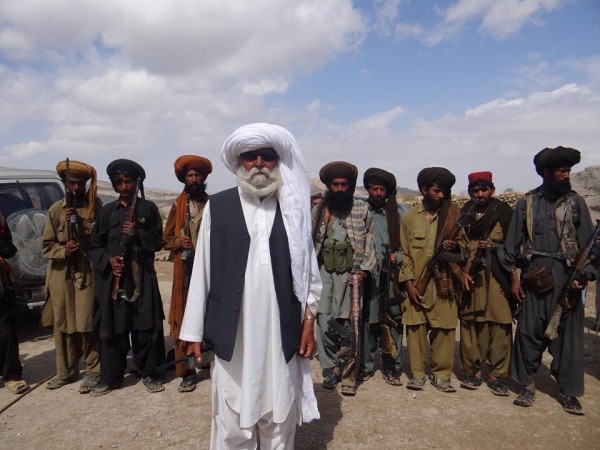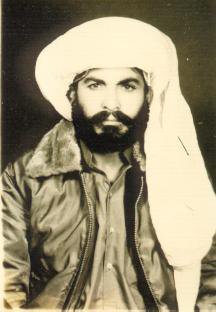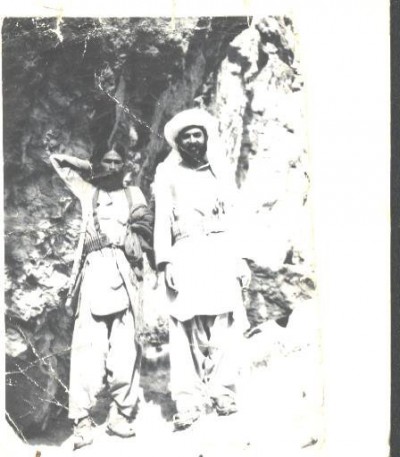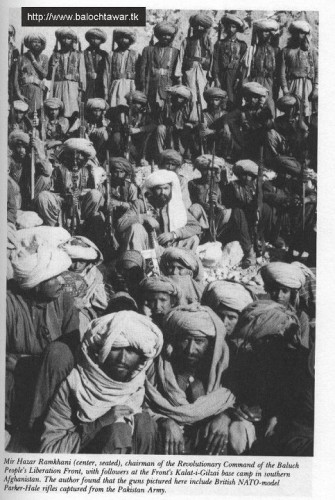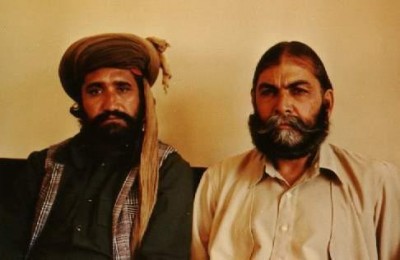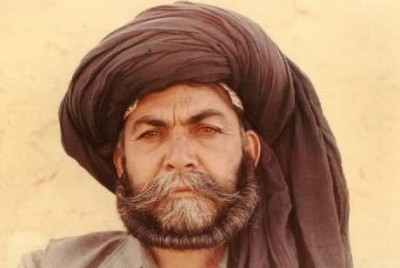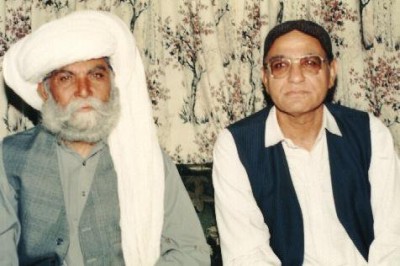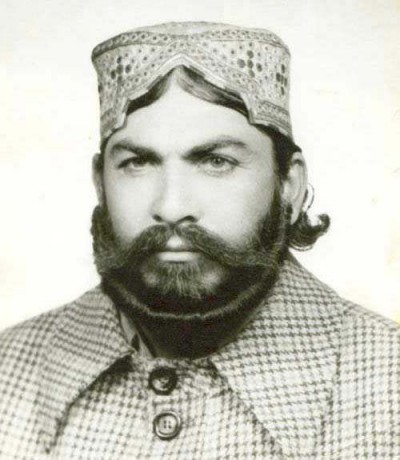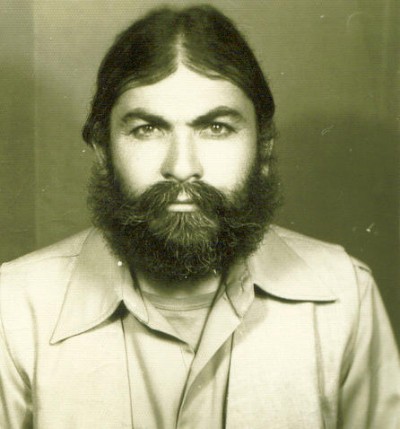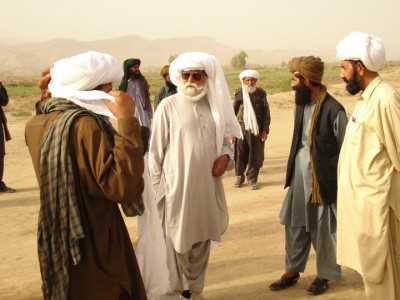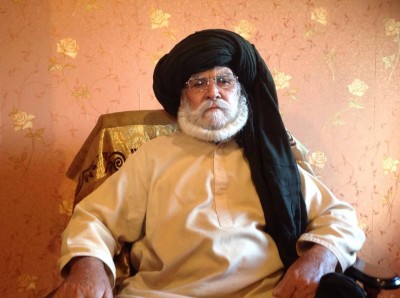16:40 Mir Hazar Khan Marri and Baloch national struggle - a historical analyses | |
|
By: Shah Nawaz Marri Mir Hazar Khan Ramkani Marri is son of Mukhadam Gula Khan Marri. Gula Khan was the traditional head of the Ramkani section of the Bijarani branch of Marris. The Marris are divided into three main sections, the Gazainis, the Bijaranis and the Loharanis. Each of these sections is then divided into sub-sections. The Sardars of the tribes historically was rotatory and elections were held between different tribes Mukhadams for sardari, it became part of Gazaini section after the intervention of the British, even after this the Marri tribe is of democratic structure the Sardar is the first among equals. Each Marri tribesman has a standing and a voice in Marri society. The Sardar or the clan chief cannot and will not ever insult a Marri and it is because of this mutual respect the loyalties of a Marri to his Sardar or clan leader is phenomenal. The Ramkani Marris live in central Marri area of Tadri, a rugged area with good grazing grounds and man-made terraces for farming. They are like all tribesmen simple and hardworking. Gula Khan was son of Alo Khan who was son of Lal Khan. His uncle Inamo, a brave man, carried scars on his face of a hand to hand fight with a mountain leopard in his youth. Lal Khan is buried at Pir Darra on Tadri Mountain and is considered a saint by all Marri and many other Baloch tribes. Mukhadam Gula Khan lead and fought against the British at Harab in 1917, when the Marris pitted their valour against the Gatling guns of the British and proved their point that they would not give recruits to the British and will not allow the Brits a single step in their lands. The Marris of that time used to tie knots of their long overflowing 'kurtas' to each other vowing not to break ranks when charging the British positions or when under attack. Many a valorous Marris lost their life in these battles and many excelled in these battles. Gula Khan fought bravely and stood tall on the British fort announcing Baloch victory. A man of strong constitution he carried one of his companions, on his shoulders, who was injured when the Marri had to retreat back home. Gula Khan died in August 1975 in Sindh while the family was living incognito to avoid persecution by the State which was conducting operations in Balochistan. It was necessary for the family to live in different places in Sindh to avoid detection as Mir Hazar Khan was leading the insurgency in Marri area where three fourths of all encounters of that struggle took place. Gula Khan was buried secretly in Nawabshah. A lot of people visit his grave each day as many people consider him as a saint. Mir Hazar Khan was born in 24th August 1945 and it was not long before he had to give up his adventurous youth for more responsible but equally adventurous struggle for Baloch rights. Mir Sher Mohammad Marri, charged with anti-state activities jumped bail in 1963. The guarantor had been Mir Rasool Baksh Talpur, later Governor of Sindh. He first went to the mountains near Quetta but then came to the Marri hills in the area near Tadri. Mir Hazar was very closely involved with the evolution of the movement then known as the 'Fararri' which opposed the building of roads in Marri area and brought the state influence in that area to zero. Ayub Khan had removed all Sardars who opposed him and brought in those who toed their line. Doda Khan the uncle of the present Sardar Khair Baksh was the official appointee he also had been the Reagent because when Meherullah Khan, the father of present Sardar, died. Khair Baksh was a child. The people under leader ship of Mir Gula khan and Shurbat Khan father of sher Mohammad Marri resented this move of the government and Doda Khan along with a few other notables of the Marri tribe, who supported the government move to remove Khair Kaksh from Sardari, were gunned down in Marri area order believed to have come from Mir Gula Khan and sher Mohammad Marri. Gula Khan & Sher Mohammad Marri factually restored Khair Baksh Marri as Marri tribe’s Sardar and Gula Khan was the first Marri Mukhadam, to put sardari turban on his head followed by rest tribal chiefs. The influence of Farraris was on the increase and although there were a few skirmishes, the state influence waned rapidly. With the ouster of Ayub Khan the provinces were once again restored and Air Marshal(r) Nur Khan negotiated with the Baloch leaders and an amnesty was declared. Mir Sher Mohammad Marri returned to Kohlu and it was thought that the new elections and the amnesty would defuse the situation. The state intransigence was all the time quite obvious and it was felt that they would not give up on their designs of exploiting resources without the will and consent of the Baloch. The reasonably fair elections were conducted and Baloch nationalists secured a lot of seats but the attitude of the Centre towards the Bengali people increased the uncertainty about the intentions of the Centre towards the Baloch. It was thought that disbanding the Fararri camps would be suicidal and they continued under the leadership of Mir Hazar Khan. In fact the military action against the Bengalis prompted a strengthening of these. The independence of Bangla Desh saw the nationalists form the government in coalition with the JUP in Balochistan. This dream was to be short lived because as soon as the Centre recovered for its humiliating defeat in Bengal it started a policy of destabilising the provincial government led by Sardar Ataullah Mengal. This task was entrusted to Jam Yousaf's father, who created a lashkar with connivance of the Centre to protest against the so-called injustices. To pre-empt any possible reaction to their planned moves the Army quietly moved near potential trouble spots like Marri area and Wad, Nal etc areas. In February 1973 the Mengal government was summarily dismissed and the JUP government led by Mufti Mahmood in NWFP resigned in protest. The Governor of Sindh Mir Rasool Baksh Talpur also resigned in protest when his elder brother Mir Ali Ahmed Talpur was accused of involvement in the arms find in Iraqi Embassy. The Centre had planned all its moves to coincide with its objectives. Mir Sher Mohammad Marri was arrested from Kohlu in March and with that act the Army moved rapidly to choke off any movement to and from Marri area. Nawab Akbar Bugti played a role that tarnished his image; he played the tune that the Centre wanted him to play. His statements created doubts about the intentions of Baloch nationalists; he accused them of harbouring anti-state sentiments and elements in areas of their influence. Each passing day saw the tightening of the cordon around the Marri area with limited incursions into Marri area by the Army. These incursions were provocative and threatening as they stopped the people from going to the city for required rations etc because the Marri area had been experiencing a few years of drought. The people were becoming desperate and they looked for succour towards the Farrars. On May 18th 1973 there was an attack on a patrol of Sibi Scouts near Tandoori and in it 8 Scouts were killed and their arms captured. The Army was waiting for an excuse and on May 21 st its helicopter borne troops landed in Mawand in centre of Marri area. With the Army arrival its chief General Tikka Khan said they would nab the culprits in 72 hours. The fighting continued till ouster of Zulfiqar Ali Bhutto in July 1977. Sardar Khair Baksh Khan, Sardar Ataullah Mengal were arrested in August 1973 and with that ended any chance of negotiated end to the conflict. It was at this critical juncture of Baloch history that Mir Hazar Khan had to shoulder the responsibility of conducting highly skilful guerrilla warfare against 80 thousand regular Army troops. He did justice to that role and in spite of being heavily outnumbered and ill-armed fought the Army to a stale mate. There were other Baloch leaders in other areas that also fought and led brilliantly. Safar Khan Zarakzai died fighting while defending the motherland, Aslam Gichki was in Makran area. Ali Mohammad Mengal, a veteran of old struggles died fighting as did Laung Khan Mengal, brother of poet Mir Gul Khan Naseer. Comander Jalat Khan Marri died in a battle against the army. In short the Baloch all over Balochistan put up a valiant resistance in face of overwhelming odds. Most of the actions against the Army during this period occurred in Marri area but all Baloch vindicated the trust the trust that the Baloch nation reposed to them. The Army repression in Marri area was extreme and this prompted an exodus of people from the area to Sindh but they faced harassment and persecution there too. The Baloch were forced to seek refuge in Afghanistan in 1975. The Baloch guerrilla with rudimentary arms but a perfect knowledge of the terrain and with unmatched resilience constantly each day harassed the Army, inflicting heavy casualties. It was not a gesture of kindness that Zia offered amnesty it was necessity for them to disengage at the earliest. Mir Hazar Khan remained in Marri area but he very skillfully organised constant attacks in other parts of Balochistan, organizing attacks and raids against the Army were on sharp rise till the very last moment when so called ceasefire was declared. He for sometime was in Sindh as well but all the time in the thick of things with an excellent network of messengers and couriers. It was at a later stage that he shifted to Afghanistan. President Daud was sympathetic and had allowed refuge to the people but there were a lot of restrictions on movement and settlement of people who migrated there. He was about to send off the refuges back to Pakistan after Zia's amnesty but then the 'Saur Revolution' of April 1978 toppled him and Nur Muhammad Taraki and the Khalq party took over. The new government was soon involved in internal struggles but remained sympathetic to Baloch. The year 1979 ended with the entry of Russians and the first years saw of 80 saw a phenomenal increase in the activity of US and Arab backed Mujahideens based and trained in Pakistan. The internal situation that developed within Afghanistan put the Baloch at a disadvantage. The Afghans sometimes expected the Baloch to fight the Mujahideens whom they called common enemies. Mir Hazar Khan and his advisors resisted all attempts to involve them in the fighting. The reason was simple and factual 'we are here for our own struggle and although we sympathize with you we simply do not have the manpower to get involved in a debilitating fight with their enemies'. The Russians too at times dropped hints regarding this but were given the same answers. Resisting these demands was not an easy task as courtesy demanded some quid pro quo but it was a matter of principle which could not be compromised. The Marris were first settled in Kandahar but because differences arose between Mir Hazar Khan and Yakub Durkani , a sub-section of Ramkanis, so the main camp was shifted to Apo Tangi area in Zabul province. Some Marris were not allowed inside Afghanistan so they were stationed near border at Shorawak. The life of Marri refugees was very tough because the Red Cross as it was known then refused to accept them as refugees. The help from Afghanistan government was barely sufficient and the cold and diseases took their toll in the cold Apo Tangi and Shorawak areas. The advent of Taraki government saw the Shorawak residents get permission to join the main camp at Apo Tangi. In 1981 the camp was shifted near Lashkargah in Helmand province because it was warmer and nearer a city from where rations could be procured. At Apo Tangi the last during the last six months of stay there was a near blockade of the camp by those fighting the government. The administration and the running of the camp including its protection was managed by Mir Hazar Khan who spent most of his stay in Afghanistan in the camps with the Baloch. He sometimes went to Kabul for meetings with officials or other related work and stayed at the apartment given by the government. The living of so many people in the same restricted place with very opportunities had its own social, economic, political and medical problems. Mir Hazar Khan acted as the arbiter of disputes and the problems that arose within camp. It was a 24/7 job. He was always available to the people and did everything he could to ameliorate the hardships of the people. He managed to keep the people focused and committed to the greater cause. The peoples' medical and educational needs were looked after by a Mir Mohammad Ali Talpur who was in the camp since 1978. The government provided education to the children in Pashto and Dari there during the morning hours while the education in English and Urdu was provided during the afternoons by Mir Mohammad Ali Talpur. Many a student went on for further studies to Russia on scholarships provided by the government. Many secured diplomas and returned and some still continue to live there. The treatment of people was specially difficult when there was an out break of epidemics like measles etc, especially during the stay at Apo as it was far away from cities. In December 1981 Khair Baksh Khan came to stay in Kabul on permanent basis. In 1986-87 there was an influx of Marris from Pakistan and Mir Sher Mohammad Marri came in early 1987.The population of the camp suddenly burgeoned from 7000 to 14000 people with a phenomenal increase in the problems. The government was getting shakier by the day and eventually in 1992 the Najibullah government was overthrown and all the Baloch refugees there had to return to Pakistan. Mir Hazar Khan Marri a committed Baloch Nationalist he served the Baloch national movement selflessly at the time it was in its direst straits, the time when there was neither any media facility as it is today nor there were the modern sophisticated weapons which the conflicts in the region have made available today. The Baloch cause is very near to his heart and his service has been invaluable. What divided Mir Hazar Khan and Khair Baksh Marri relates to them and one must ask them personally but Baloch mothers and fighters will not find comfort unless Mir Hazar Khan joins and takes charge of Baloch freedom struggle under his personal command again. Facebook: | |
|
| |
| Total comments: 0 | |
